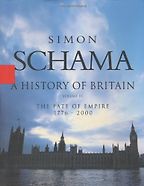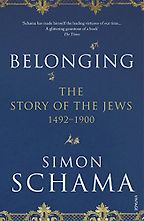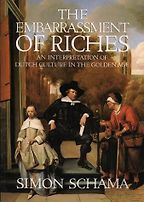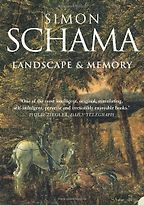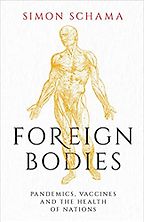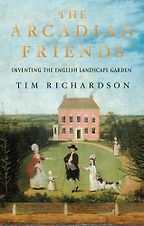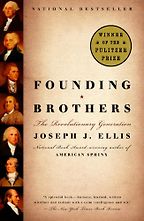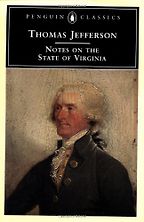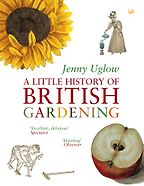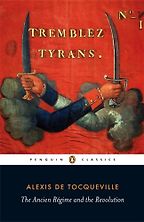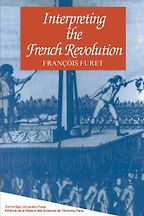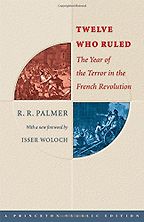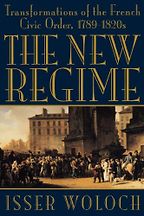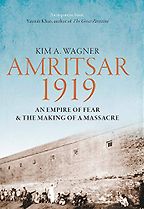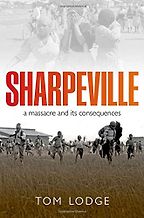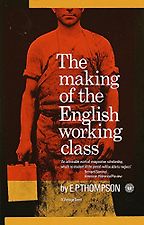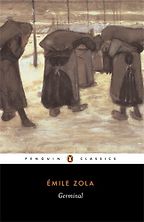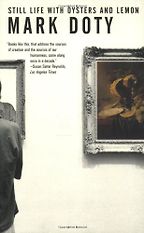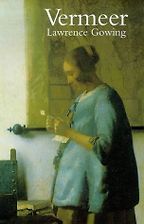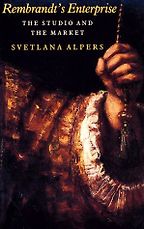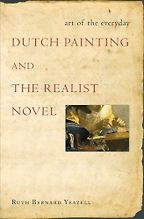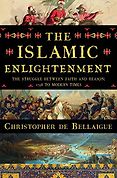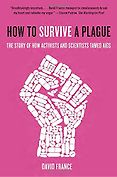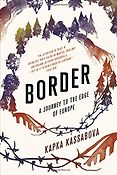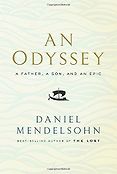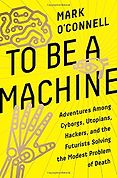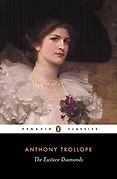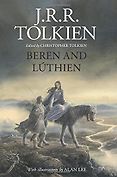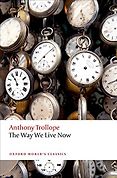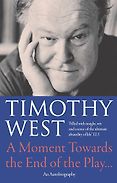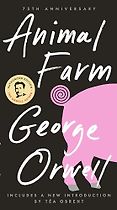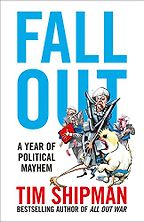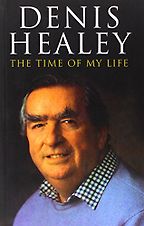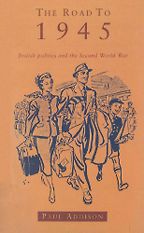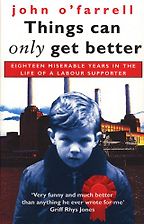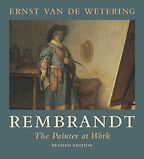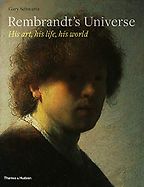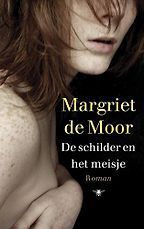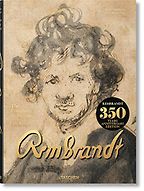
Books by Simon Schama
Simon Schama is a British historian, now University Professor of Art History and History at Columbia University, who came to prominence writing books about Dutch history. His first book, Patriots and Liberators (1977), won the UK’s prestigious Wolfson History Prize and his 1987 book, The Embarrassment of Riches—about Dutch culture during its golden age in the 17th century—won him international acclaim. In 1989, the bicentennial of the French Revolution, he published Citizens, a book that showed the more grisly side of the quest for liberté, égalité and fraternité. Below, all the times Simon Schama’s books have been recommended on Five Books:
“I chose this book because Simon Schama is such a wonderful writer. He has guts…He goes all the way, with all the senses engaged. Reading Schama is like stepping into a time machine. You can smell the paint, the poor quality of the air above Amsterdam’s canals, centuries ago…Rembrandt’s Eyes reads almost like a novel. He goes very far with some of his speculations, but I find it marvellous that Schama can do this about a foreign country—one that he didn’t even grow up in. It’s a real accomplishment of cultural empathy, and of course of bringing another time alive. He writes a book at once about a Dutch hero (and Rembrandt’s competition with Rubens, the Flemish master) and about Dutch history with the authority of a native…You have to remember: the only way to write about history or about a fabulous figure like Rembrandt is by being a storyteller. You have to use words, images, metaphors to kiss the past alive—and that is exactly what Schama does. I admire him for it. And since we’re talking about art, so much comes down to interpretation. Adopting an interpretive technique I think is fitting for the subject matter. What he does is to create a richer picture for the reader.” Read more...
Onno Blom, Art Historians, Critics & Curator
“I read the three volumes of Schama’s A History of Britain quickly…they are beautifully written. There’s a rhythm to them. Schama has mastered that real art of history where you give somebody reading it enough of a sense of detail that they feel the historian knows what they’re doing and that you come out of it knowing more, but without getting bogged down in the detail that you don’t need…It’s a page-turner…He manages to capture, at different points of the book, a real sense of what’s distinctive about British history.” Read more...
The best books on Modern British History
Andrew Hindmoor, Historian
“Simon Schama, when he’s on form, is pretty well one of the most exciting writers we have today. His prose crackles with wit, insight, and a sort of rather original articulacy. He is a great writer. He’s a brilliant researcher. The book is essentially a series of the most colourful anecdotes. Some of us were joking that rather than being called Belonging: the Story of the Jews, it ought to be called Belonging: the Story of Some Jews. And that’s a compliment, by the way, not a criticism. It is a rolling, extraordinary tapestry of bizarre stories. But, behind them, lie some themes. Why are Jews always being excluded? Why are they a peripatetic race? How do they take root in society? Societies partially exclude them, which means they’re more active in commerce than they are in government, and so on. All sorts of themes that have enriched and influenced Judaism over the centuries are in the book. So it’s quite profound. But, above all else, it is just the most coruscatingly enjoyable read. It’s very big, very long, about 650 pages. But you won’t regret reading it, it’s fantastic.” Read more...
“There’s a big debate within the study of Dutch art about whether these works are pure transcriptions of reality, documents of a historical moment, or whether they are really symbolic texts that we should be interpreting on a figurative level. I think the debate comes down to this: is the best explanation of these images a thorough knowledge of Dutch history and culture at the time, such as Schama presents? Or is there something irreducible in the greatest Dutch art that you can’t boil down to historical context?” Read more...
The best books on The Dutch Masters
Adam Eaker, Art Historians, Critics & Curator
“He has done something that a few other historians have been able to do—and only a few—and that is to tell a story that’s sufficiently absorbing that people want to read it. It’s completely different from the other books. It’s all narrative…it’s filled with incredibly interesting titbits and anecdotes and characterisations of people. It’s generally negative about the revolution because it’s basically about how the revolution is really, really violent.” Read more...
The best books on The French Revolution
Lynn Hunt, Historian
“I’ve found this one of the most extraordinary books of cultural history I’ve ever read…Simon Schama has this talent for taking little stories and placing them in a broad context. I read it ages ago but the one chapter that has stayed with me most vividly is the one about mountains. He describes the journey humankind has taken in relation to their perception of mountains, which started as something really horrid and scary, so that in the early 18th century tourists who crossed the Alps drew their blinds to avoid seeing the horror of the mountains. They would literally blindfold themselves. Then in the later 18th century there’s the whole idea of the sublime, that you find God in the mountains as an awesome, glorious expression of God’s might.” Read more...
The best books on Horticulture
Andrea Wulf, Historian
Foreign Bodies: Pandemics, Vaccines, and the Health of Nations
by Simon Schama
Foreign Bodies is a book about pandemics and vaccines across the millennia by Anglo-American historian Simon Schama. Schama is a professor at Columbia but also a brilliant popular historian, very talented at getting on top of huge amounts of information and getting it across in a memorable way. This book gives a historical perspective on the Covid pandemic, even as Schama predicts more will follow.
Interviews where books by Simon Schama were recommended
The best books on Horticulture, recommended by Andrea Wulf
The respected horticulturalist says if you plant an oak tree you know you’re never going to see it grow into maturity, but in planting it you are asserting your belief in the future and in future generations.
The best books on The French Revolution, recommended by Lynn Hunt
It’s a revolution that still resonates and yet it resists easy interpretation. Lynn Hunt, a leading historian of the French Revolution, tells us what the events of 1789 and later years really meant, and what relevance they have for us today.
The best books on Popular Uprisings, recommended by Robert Poole
Under what conditions do popular uprisings end in massacres? What’s the best way for someone protesting against a government to get what they want? Robert Poole, Professor of History at the University of Central Lancashire and author of Peterloo: The English Uprising, recommends the best books on uprisings.
-

1
Still Life with Oysters and Lemon: On Objects and Intimacy
by Mark Doty -

2
The Embarrassment of Riches: An Interpretation of Dutch Culture in the Golden Age
by Simon Schama -

3
Vermeer
by Lawrence Gowing -

4
Rembrandt's Enterprise: The Studio and the Market
by Svetlana Alpers -

5
Art of the Everyday: Dutch Painting and the Realist Novel
by Ruth Bernard Yeazell
The best books on The Dutch Masters, recommended by Adam Eaker
The best books on The Dutch Masters, recommended by Adam Eaker
The past may be a foreign country, but the world portrayed in the art of the Dutch Masters is not so very far from our own, says Adam Eaker of the Metropolitan Museum of Art in New York. For a society that struggles with materialism and consumption, there are a lot of lessons to be learnt from the 17th century Golden Age.
-

1
The Islamic Enlightenment: The Struggle Between Faith and Reason, 1798 to Modern Times
by Christopher de Bellaigue -

2
How to Survive a Plague: The Story of How Activists and Scientists Tamed Aids
by David France -

3
Border: A Journey to the Edge of Europe
by Kapka Kassabova -

4
An Odyssey: A Father, a Son, and an Epic
by Daniel Mendelsohn -

5
To Be a Machine: Adventures Among Cyborgs, Utopians, Hackers, and the Futurists Solving the Modest Problem of Death
by Mark O'Connell -

6
Belonging: The Story of the Jews 1492–1900
by Simon Schama
Best Nonfiction Books of 2017, recommended by Peter Bazalgette
Best Nonfiction Books of 2017, recommended by Peter Bazalgette
It’s hard to choose the very best nonfiction books of 2017, but the Baillie Gifford Prize aims to do just that. The chair of this year’s judging panel, Peter Bazalgette, talks us through the six fabulous books that made the shortlist.
-

1
The Eustace Diamonds
by Anthony Trollope -

2
A History of Britain, Volume III: The Fate of the Empire 1776–2000
by Simon Schama -

3
Beren and Lúthien
J R R Tolkien, Alan Lee (illustrator), Christopher Tolkien (editor) -

4
The Way We Live Now
by Anthony Trollope -

5
A Moment Towards the End of the Play
-

6
Animal Farm
by George Orwell
Audiobooks Narrated by Timothy West
Audiobooks Narrated by Timothy West
As well as appearing in many plays and movies, the British actor Timothy West (1934-2024) was a great narrator of audiobooks. He narrated a large number of Victorian novelist Anthony Trollope’s works, as well as abridged versions of Simon Schama’s History of Britain, a three-volume work. Below, some of the books in his audiobook oeuvre (not all are easy to get hold of or are only available in some countries).
-

1
Fall Out: A Year of Political Mayhem
by Tim Shipman -

2
A History of Britain, Volume III: The Fate of the Empire 1776–2000
by Simon Schama -

3
The Time of My Life
by Denis Healey -

4
The Road to 1945: British Politics and the Second World War
by Paul Addison -

5
Things Can Only Get Better: Eighteen Miserable Years in the Life of a Labour Supporter
by John O'Farrell
The best books on Modern British History, recommended by Andrew Hindmoor
The best books on Modern British History, recommended by Andrew Hindmoor
What will historians say about the latest period in British history? What has stayed the same, and what is vastly different from our parents’ generation? Andrew Hindmoor, professor of politics at the University of Sheffield and author of Twelve Days that Made Modern Britain, recommends books that give insights into contemporary British history.
The best books on Rembrandt, recommended by Onno Blom
Though he left more self-portraits to posterity than practically any Old Master, there remains an air of mystery around Rembrandt the man—even on the 350th anniversary of his death. Piecing together the very few personal letters and documents left behind, Onno Blom has now reconstructed Rembrandt’s formative years in Young Rembrandt. Here he guides us through five of the most authoritative—and imaginative—accounts of the artist.
